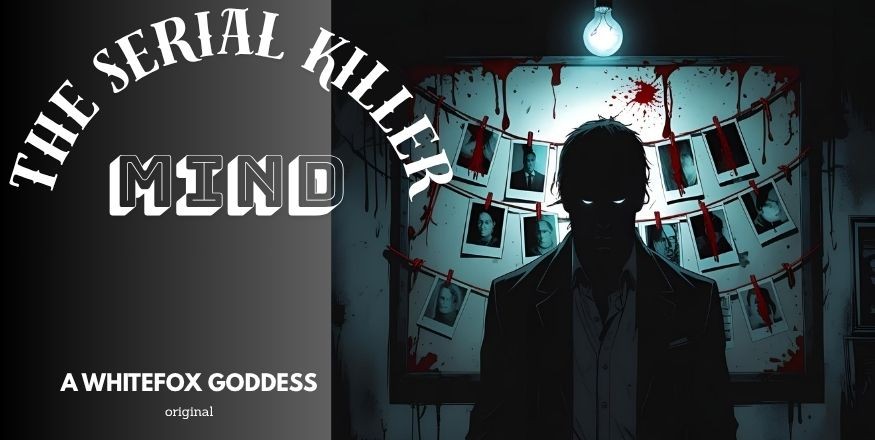23Please respect copyright.PENANAOqdOhAexEh
Clarisse Ybañez had vanished two nights ago. Twenty-seven. Publicist. Last seen leaving a rooftop bar in BGC after a client meeting. CCTV footage showed her stepping into a dark sedan. Plate number untraceable. She hadn’t made it home.
No ransom. No body.
Ella Vasquez had seen this pattern before.
And Vinci Fernandez’s name had begun to itch at the edge of her instincts like a stubborn scab.
She sat at her desk inside the Task Force's psychological profiling unit, fingers tapping against her mug. Sleep had been fitful, interrupted by flashes of screaming faces and Vinci’s sketch—the one that looked just like her.
Ella pulled up her digital folder. She wasn’t supposed to be investigating him. Technically, there was nothing to investigate. He wasn’t even part of the case officially. But she couldn’t shake the feeling that he was tied to it all — either as a key, or as a lock.
"The other me might be."
That line played over and over in her head.
She typed his name into the internal system.
Vinci R. Fernandez. 29. Filipino-Spanish. Freelance forensic artist. Consultant to Interpol for two years. Declined to renew. Transferred to private profiling consultancy. No criminal record. Graduated summa cum laude. Early thesis: 'The Dehumanization of Serial Offenders through Media Narratives.'
She skimmed faster. His psychological evaluation — surprisingly available due to his brief stint in a criminal psychological pilot program — was redacted in large parts.
But one line was highlighted by the reviewing psychiatrist:
“He shows signs of high-functioning dissociation, likely trauma-induced. There is an intense internalized duality in moral response. Observe for identity fragmentation under stress.”
Her blood ran cold.
Duality.
Identity fragmentation.
Split personality?
She leaned back, eyes fixed on the blinking cursor.
Who are you, Vinci?
That evening, Ella found herself standing outside his apartment. She hadn’t told anyone where she was going. She wasn't even sure why she was here—part curiosity, part recklessness.
Vinci lived in an old converted artist loft in Escolta — tall windows, exposed brick, the scent of turpentine bleeding out the door.
She rang once.
He opened.
There was paint on his cheek, his shirt rumpled, like he hadn’t left the studio in hours.
“You shouldn’t have come,” he said softly.
“I need to see what you’re working on,” she said, pushing past him.
He didn’t stop her.
Inside, canvases lined the walls. They were all charcoal and red ink, distorted faces — screaming, crying, watching. All female.
She turned to him.
“Clarisse Ybañez. Do you know her?”
Vinci blinked. “No.”
“You sketched someone that looks like her. Or maybe me. The lines are almost the same.”
“That sketch came from a dream.”
“You dream of victims?” she asked coldly.
“No,” he murmured. “I dream of guilt.”
He stepped closer. “Ella, you think I’m the killer.”
She didn’t answer.
Vinci laughed—short, bitter. “If I were… would you still be standing here?”
She froze. “I want to believe you’re not.”
“But?”
“But I think… you’re hiding something.”
He looked away. “You’re not wrong.”
She exhaled sharply. “Tell me.”
He walked to a painting covered by a black cloth. He hesitated, then pulled it down.
It wasn’t a victim.
It was a child. Eyes wide. Hollow. Arms wrapped around a bleeding doll.
Ella stared.
“My sister,” Vinci said. “She died. When I was ten.”
“What happened?”
“I don’t remember. But sometimes I wake up with her voice in my ears. Screaming.”
He looked at her, haunted.
“My parents said I found her body. But when the police came, there were no signs of foul play. They thought it was an accident. I never believed that. Neither did Eon.”
“Eon?” she asked slowly.
“The other me.”
Silence.
Ella’s mouth went dry. “You gave it a name.”
“I didn’t,” Vinci whispered. “He did.”
That night, when Ella left the apartment, she was no longer afraid of Vinci Fernandez.
But she was terrified of Eon.
And somewhere, in a locked room inside Vinci’s mind…
Eon smiled in the dark.
Waiting.
ns216.73.216.82da2

































